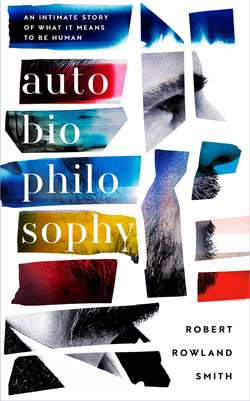Читать книгу AutoBioPhilosophy: An intimate story of what it means to be human - Robert Smith Rowland - Страница 40
French intellectuals
ОглавлениеI had gone up to read English at Oxford in October 1984. There had recently formed a group calling itself ‘Oxford English Limited’ (OEL). The name was a pun: OEL’s mission was to expose the limitations of the English Literature syllabus. Its high-minded members claimed that the study of English at Oxford had been reduced to whimsical musings about novels and the lives of their authors. Made up largely of Marxists, OEL insisted that literature be examined in its political context. Rather than extolling Pride and Prejudice for its marvellous characters and charming plot, we should be looking at the way in which class differences were reinforced by its author. Through this lens, which was the opposite of rose-tinted, it appeared that Jane Austen was doing little more than condoning the bourgeois way of life. She was thereby perpetuating capitalism rather than disrupting it – disruption being the Marxist protocol.
The early 1980s was the era of Margaret Thatcher. Discontent with her brand of Conservatism infected not just those on the far Left but also those of more moderate kidney. That Marxist approach to literature fitted with an anti-authoritarianism that was in the air. Yet to me it came as a jolt. At school I had been taught to judge literature purely on its aesthetic merits. Did the novel achieve a satisfying unity or did it feel fragmented? Were the characters ‘flat’ or ‘round’? How successfully did the language used by the author express his or her intentions? Here was a much more abrasive approach. According to OEL, a novel was less a work of art than a battleground upon which ideologies were fought out. Like many of my peers, I was forced to rethink my assumptions.
The OEL call to politicise the study of literature went together with a wider attempt by progressive dons in the English faculty to bring continental thinking to bear upon literary studies. Of especial interest were the ideas of Parisian intellectuals such as Michel Foucault, Julia Kristeva, Hélène Cixous, Roland Barthes, Jean-François Lyotard, Gilles Deleuze, Luce Irigaray and Jacques Derrida. Though the differences between these thinkers were as great as the similarities, their output was often taken en bloc. This block went by the moniker of ‘Post-Structuralism’. It combined a depth of analysis with a width of reference that made the Oxford way of doing things seem to me parochial and light-weight.
From that list of thinkers, it was the last, Jacques Derrida, to whom I felt the greatest draw. There was a book of Derrida’s called Writing and Difference – my paperback translation had an avocado green cover – over which I pored as if it were the oracle. I’m not sure that I understood a word to begin with. But that didn’t matter. I became mesmerised by the intricacy of the sentence structure, the elegance of the argumentation, the intensity of the analysis, the boldness of the conclusions.
This too was disruptive but in a way which, to my mind, was far more fundamental than that of the Marxists. Derrida was systematically deconstructing the cornerstones of Western philosophy, all the way from Plato through to his own contemporaries. Those cornerstones weren’t merely academic. They were the ideas on which Western society as a whole was built – ideas like democracy, truth, justice and freedom. Derrida was showing how many of these ideas just didn’t stand up under scrutiny, and that it was time to start again from scratch. To me, it was thrilling.
The very word ‘deconstruction’, which has since entered common parlance, comes to us from Derrida; although strictly speaking it originates with his precursor, Martin Heidegger. Derrida sought to distance himself from the term, however, on account of its negative connotations. In fact, his work had both a negative and a positive mode, both brake and accelerator. The brake involved taking a fine-toothed comb to the texts of leading thinkers in order to expose biases, point out contradictions, and highlight apparently marginal remarks that undermined the central thesis. The accelerator saw Derrida blending disciplines usually held apart, such as psychoanalysis and philosophy, in order to produce fresh insight. Ever inventive, he created a host of new concepts as well as reinventing the old. Even when debunking the arguments of another philosopher, he would generally do so in a highly respectful manner, helping the reader to understand that other philosopher’s reasoning. Through Derrida, one could learn about the entire history of ideas. One also saw how these ideas could be renewed.
Not everybody appreciated both sides. The innate conservatism of Oxford led many academics to denounce Derrida as an intellectual terrorist, bent on detonating the achievements of Western civilisation. They claimed that he was a nihilist. They said that the prolixity of his prose served to mask a lack of clear thinking. To quote a phrase of the times, they belittled his writings as ‘intellectual masturbation’.
Jacques Derrida was a divisive figure. In Oxford, the majority took against him, especially the philosophers, although he enjoyed support among a group of Literature dons and assorted mavericks. In many British universities he was reviled, but still there were pro-Derrida camps, especially at Sussex University, in Brighton, which after all was closer to France. At Cambridge – always more international in its tastes than Oxford – the controversy reached a head when a motion was submitted to award the contrarian an honorary doctorate. It threw the academy into turmoil, and the story made the nationals. After measured oration and bitter wrangling, the proposal squeaked through.
